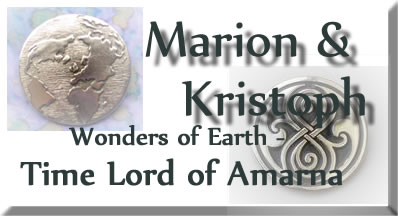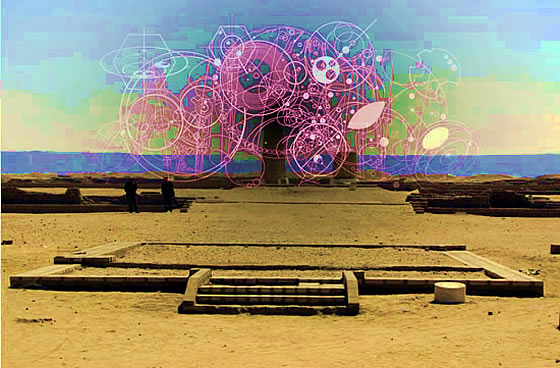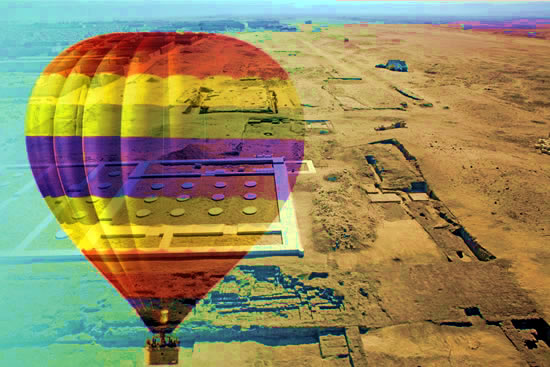

Marion and Aineytta wore wide brimmed hats as well as carrying silk printed parasols to keep the insidious sun from their faces. Their shoulder bags carried bottles of spring water and cooling facial mist against the dryness of the air.
Most of the women in the tour party carried similar bottles, but theirs weren’t self-cooling and self-refilling.
Arriving in Cairo for a Nile tour by TARDIS rather than charter plane had its advantages.
This was day six of the fourteen day luxury cruise on a boat called the MV Mayfair. They had already seen the Great Pyramids and the Sphinx on the Giza plateau and a more air-conditioned afternoon at the Cairo museum for a crash course in Nile history. They had enjoyed spectacular Nile sunsets after five star dinners and cool pre-breakfast walks on the sundeck between stops along the way to see all of the architecturally and historically interesting sites.
The past two afternoons had seen them exploring the Dahshour Pyramids with the famous Bent Pyramid of Sneferu, and the ‘collapsed’ pyramid at Meidum. For Aineytta it was all new and wondrous, though she admitted to being puzzled at the construction of such huge buildings to house the dead.
Marion found the name Snefaru peculiarly amusing and tried hard all afternoon not to offend anyone by giggling every time he was mentioned.
Today they were at a place they couldn’t visit the last time Marion and Kristoph had ‘done’ the Nile. That time, when Marion was still a student in Liverpool, they had chosen a classic Nineteen thirties trip with the full complement of American heiresses and shy young English debutantes, retired Indian army officers and shadowy eastern Europeans that a good old fashioned Agatha Christie story needed.
But in the nineteen thirties the lost city of Amarna, King Akhenate’s short lived capital, was still lost. That is to say archaeologists had been excavating in the area for a long time, but the full grandeur and the historical importance of the site was not yet known. It wasn’t until much later that it was conclusively identified as the near-mythical lost city.
“It doesn’t look as if they found very much of it, Aineytta remarked as she viewed the northern part of the complex which was mostly the floors and foundations of the long-vanished buildings
“A lot of the structures were taken apart and re-used in other settlements after the city was abandoned,” Kristoph explained. “It’s a process known as ‘robbing out’, and quite common when dressed stone was expensive and had to be transported long distances.”
Aineytta looked around the mostly flat area and thought there must have been a lot of robbers.
“You have to use a lot of imagination,” Kristoph admitted. “In its very short heyday it was magnificent. The palace of King Akhenaten would put our Citadel to shame.”
He touched his mother and his wife on the shoulders and for a few amazing moments both of them saw the ancient city around them, thronging with people, merchants selling all sorts of wares in a street market, music and dancing girls in open plazas, the great palace from where Akhenaten ruled not only his city but the whole of Egypt.
“And all of it built without gravity lifts and transmat technology,” Kristoph reminded them.
“Yes, I have found these pre-technological Egyptians wonderfully resourceful in that respect,” Aineytta admitted. “Those ‘Great Pyramids’ built to such exact measurements, and aligned with the constellations were remarkable.”
“I’m just wondering when Kristoph saw this place in its full glory,” Marion remarked in order to stave off another conversation about the mathematics of pyramid construction. “Yes, you have,” she added before he could deny it. “You corrected the official tour guide three times - about the position of the Temple, the size of the Treasury and the orientation of the doors of the King’s Bathhouse. You were here before.”
Kristoph half smiled, but with a far off look in his eyes.
“Yes, I have been here before. It was in my Celestial Intervention Agency days. I chased a Renegade to this city.”
Marion and Aineytta looked at each other doubtfully. Neither of them would ever press him about that part of his past. If he wanted to tell the story, he would.
“It’s all right,” he told them both after a moment or two. “It wasn’t an assassination. Do you remember Vinzi Chárr, Mama?”
“That odd boy who spent all his time drawing?” Aineytta recalled.
“He wasn’t a boy when I went looking for him, though ‘odd’ may fairly be ascribed to his personality.”
“He was a boy when your father and I were young. As I recall, he only just managed to graduate from the Academy. He was quite hopeless and inattentive. The only lesson he ever truly shone in was technical drawing. I truly believe he thought of the same old as so many lengths and winds and vertical planes. ”
“Quite possibly,” Kristoph agreed. “He was a nonentity in every respect until he built his own vortex capsule and crossed the Transduction Barrier without permission.”
Kristoph smiled as he talked about those infractions of Gallifreyan law that had brought the young Time Lord to the attention of the Celestial Intervention Agency. Marion knew why. Kristoph deeply resented the need for such tight control over who came and went through the Transduction Barrier. He would have admired rather than censured anyone who succeeded in thwarting that section of the Gallifreyan Civil Service.
“He came here?” Aineytta guessed. “To this part of Earth in the time when it was so important?”
“He came to Egypt - to Thebes, initially, the royal city, and got himself recognised as a draughtsman. A culture obsessed with building huge structures was just what he was cut out for. When Akhenaten became Pharaoh, Vinzi had already been there for a half century and was pretending to be his own son, carrying on the work. He came out here to build the new city.”
“A Time Lord built this city?” Marion queried.
“Among dozens of architects and draughtsman,” Kristoph answered. “But, yes, a Time Lord’s imagination helped shape Amarna. I’m almost certain he designed the aforementioned bathhouse. The plumbing had the mark of somebody who had grown up near a hotter desert than this one.”
“But you came to find him?” Even though Kristoph had assured them assassination was not involved, Aineytta was a little worried about how this story would end.
“He was not a criminal in the strict sense, just an absconder without the required paperwork. I was allowed to exercise discretion,” Kristoph continued in reassuring tones. “I made sure he destroyed his unlicensed and potentially dangerous time capsule and left him here. Self-imposed exile doing what he liked doing best was the most appropriate punishment for his breaking of our emigration rules.”
“Oh.” Marion was relieved that nothing bad happened to the young Time Lord who had sought exotic excitement in ancient Egypt. “So not really a punishment at all.”
“Except for being cut off from Gallifrey,” Aineytta added, understanding fully what a sacrifice such exile, even by choice, meant.
“I saw no reason to make him go back to Gallifrey where he never fitted in when he fitted into this world just fine,” Kristoph insisted. “Come on. It is far too hot for walking around ruins like these with hardly anything tall enough to provide shade. I know a better way to see Vinzi’s handiwork.”
He pointed towards a splash of bright primary colour in the sandy yellow-orange landscape. Marion and Aineytta both cried out in excitement at the prospect of taking a hot air balloon trip into the sky above Amarna.
It was everything they expected. The air was cool and refreshing above the desert and the red and green balloon shaded them from the sunlight while they had a perfect birds’ eye view of the ancient city.
“It all makes sense from up here,” Marion commented. “It’s just like having a huge map spread out below us. That’s the palace and those are the Tombs where at least three of Akhenaten’s wives were buried….”
“I’m not sure I’m completely clear why he built a whole city in the first place,” Aineytta commented. “I’ve tried to take it in, but the official tour guide the cruise company employed seems to assume everyone listening to him already understands about these Pharaohs and their bewildering dynasties. I had never even heard of Egypt before we came here. I confess to being a little behind in my knowledge.”
“He wanted his people to stop worshipping multiple gods and instead adhere to a single god, Aten, that was a sort of amalgamation of all the gods,” Marion answered Aineytta, appreciating her dilemma. She was a bit befuddled by the long lines of Pharaohs. Akhenaten stood out for her mainly because he was a change from all the rulers called Rameses, the reginal numbers of which she knew she would never grasp. “He couldn’t do that in Thebes, surrounded by temples to all the old gods, so he decided a fresh start was needed.”
“Yet the city was abandoned and its stones taken to build other cities.”
“His son, Tutankhamen… the one whose sarcophagus and grave goods we saw in the museum back in Cairo… abandoned the one god and went back to Thebes and the old way of thinking.”
Aineytta thought about all of that for a while as the balloon drifted slowly over the ancient city.
“That’s what really is wondrous about your human race,” she said after a while. “Such ambition and achievement in such a short lifespan. Even if this Akhenaten failed in his effort, his vision stretched beyond his own existence. Remarkable.”
“Marion isn’t sure that’s a way of praising her species or not, Mama,” Kristoph said with a wide smile.
“It is a compliment,” Aineytta assured her daughter in law. “Though I do find the customs of these Egyptians thoroughly alien. Their polytheism is one thing, but their funeral practices are utterly baffling. Preserving the corporeal body for the afterlife…. It is the exact opposite of our own practice. A Time Lord body is cremated until no fragments remain while his mind joins the Matrix for posterity.”
“Yes, I wondered about that,” Marion said. “What about Vinzi Chárr? A Time Lord living amongst the Egyptians? When he died….”
“He hasn’t died yet,” Kristoph explained.
“But it’s at least three thousand years since Akhenaten’s reign….”
“Not in Gallifreyan time. He’s only been gone a few centuries. He has many more left.”
“I forgot to think like a time traveller,” Marion admitted, glad that they were all speaking Low Gallifreyan and their balloon pilot who spoke French, English, German and his own native Arabic couldn’t follow their conversation.
“He has a communications cube,” Kristoph added, addressing the particular aspect of Vinzi’s exile that had worried his mother. “When he is close to the end of his last regeneration, he will be able to contact the Agency and they will come to get him – if necessary, to collect his body before anyone in Thebes finds out that they need two canopic jars for his hearts.”
“I should hope so,” Aineytta insisted, ignoring her son’s slightly flippant attitude to death. “This is an interesting planet with remarkable history, but no place for a Time Lord to die.”
“That it is not,” Kristoph agreed. “But it is a place for a Time Lord to visit and appreciate the magnificence of a race we usually regard as less sophisticated than we are. I think some of our more entrenched thinkers ought to take a Nile cruise one of these days.”
The thought of some of those ‘entrenched thinkers’ trying to see the romance of sunset over the Egyptian desert made Marion laugh out loud even more than the name Snefaru did, and at least she couldn’t offend anyone this time. Her laughter was caught by the breeze and drifted across Akhenaten’s once lost city with the handiwork of a Gallifreyan mathematician embedded in it.

 |
 |
 |